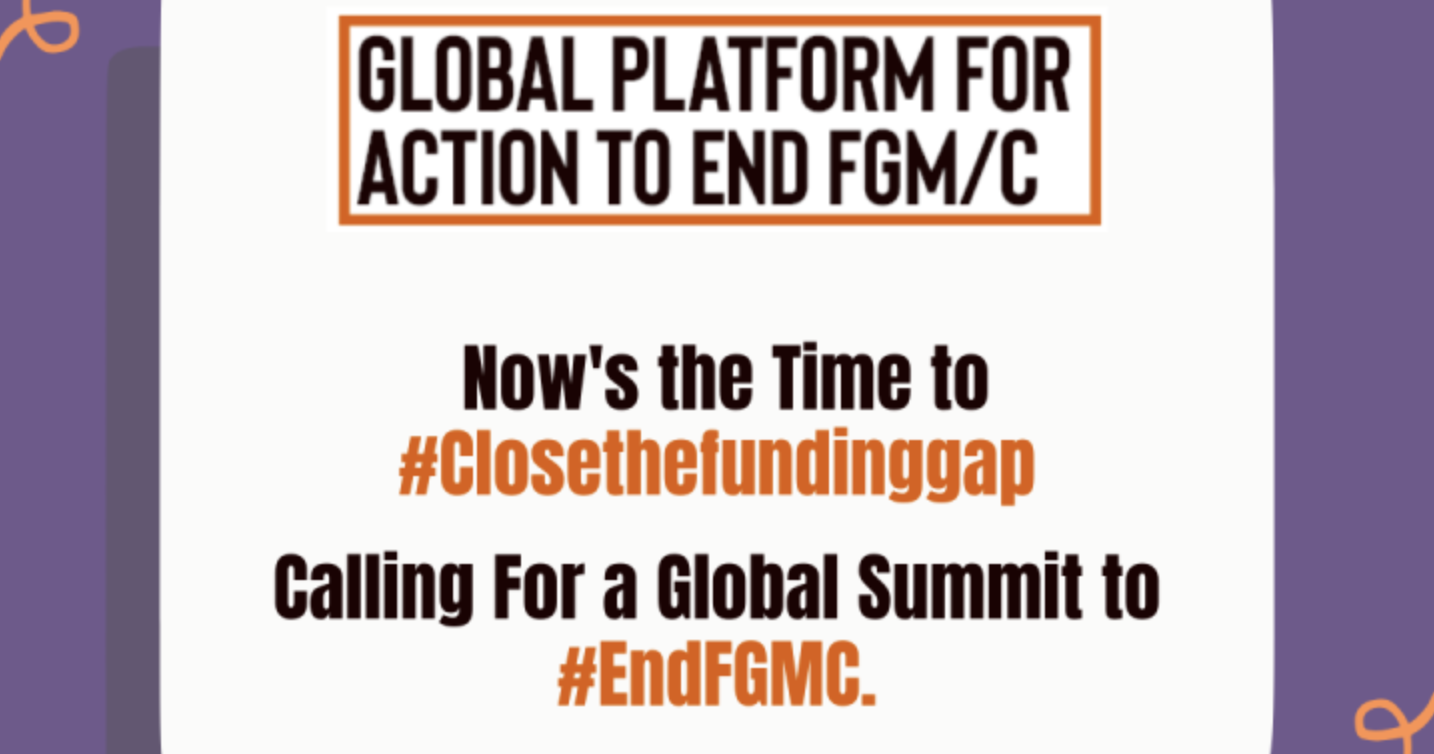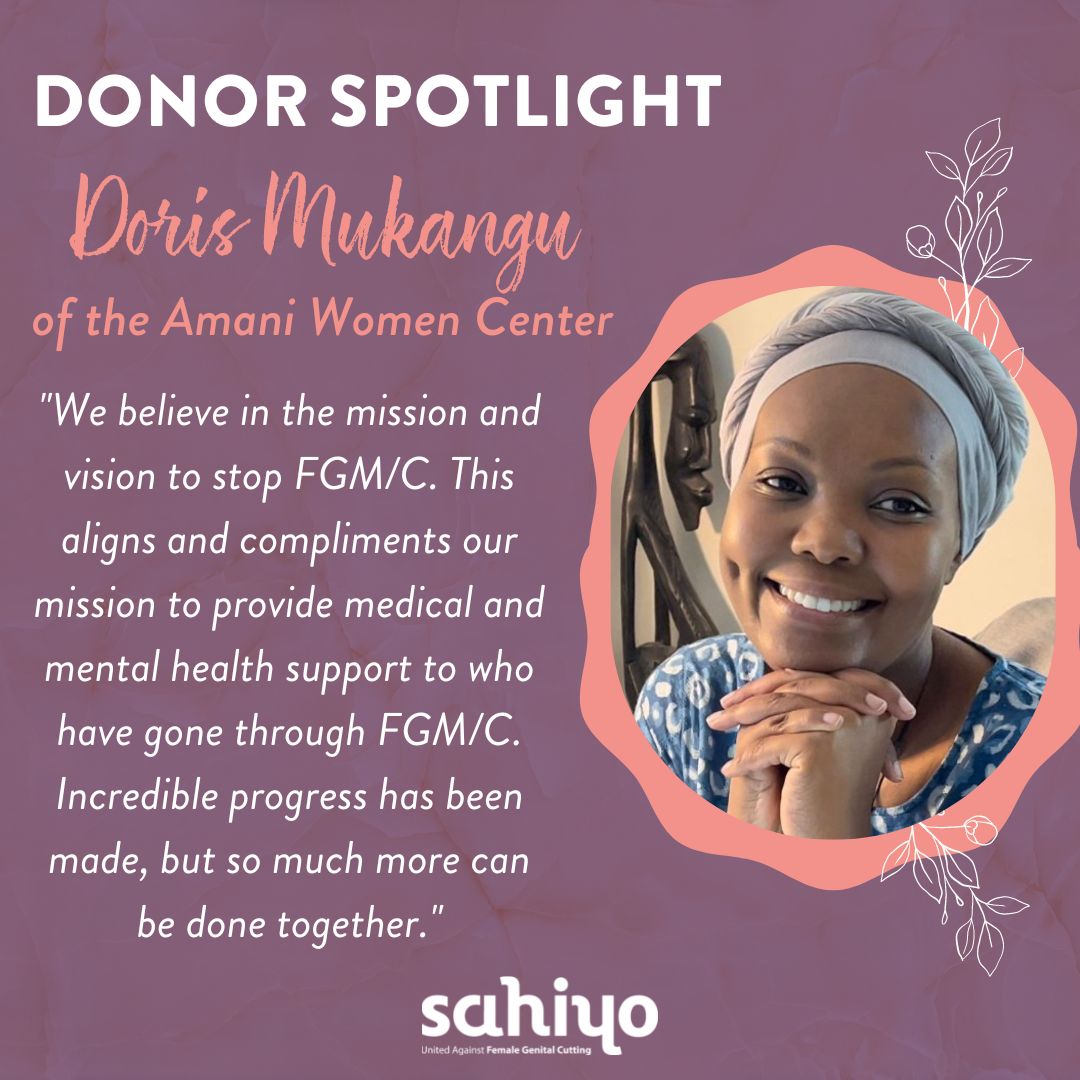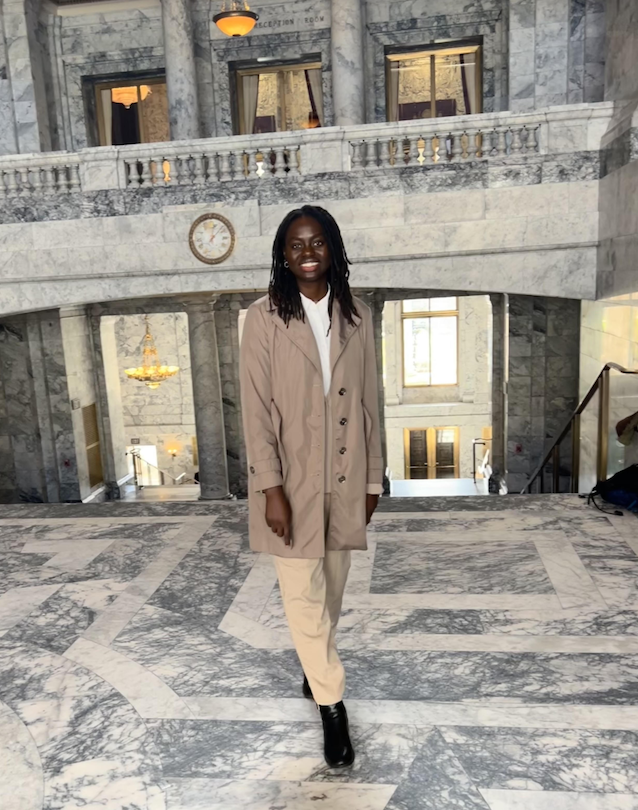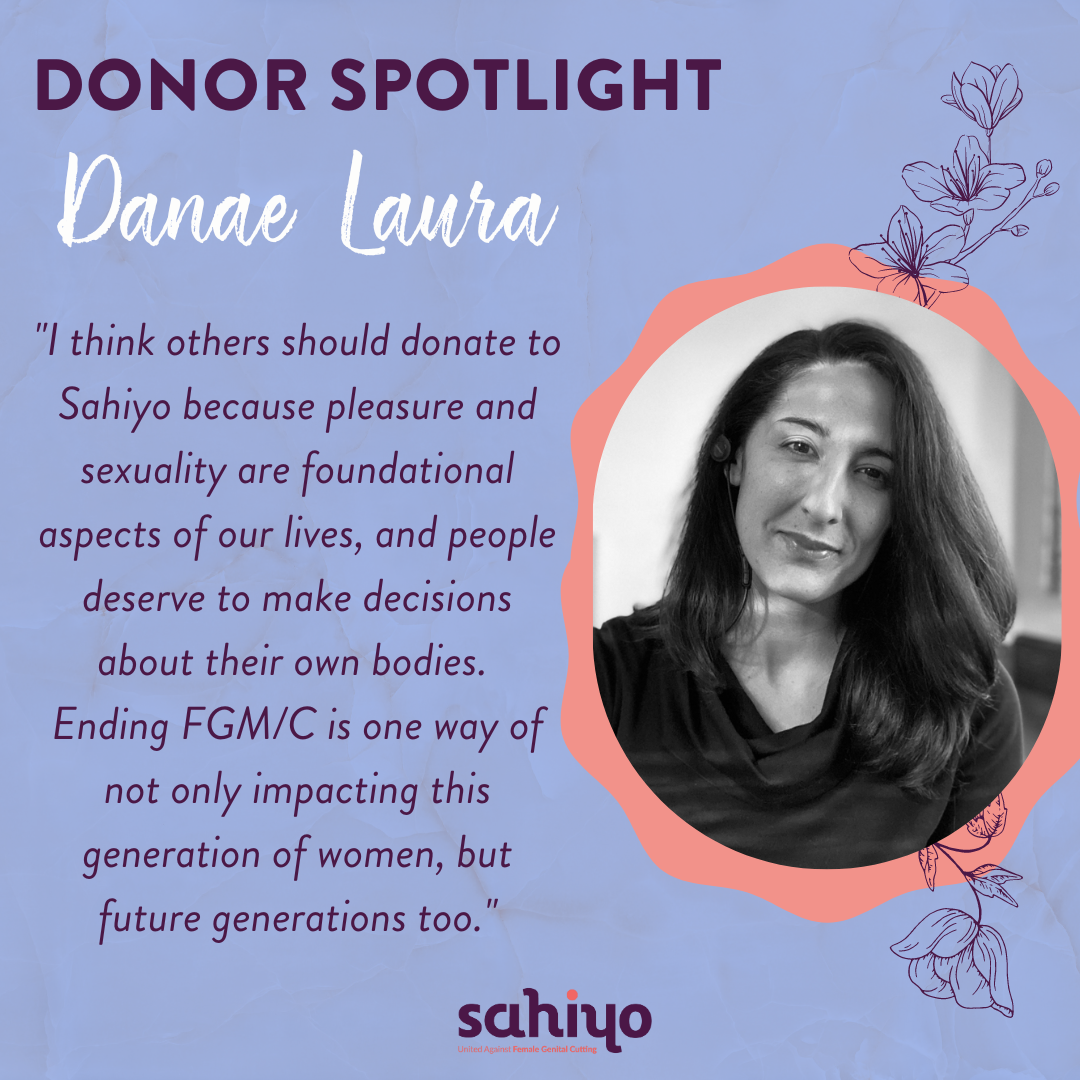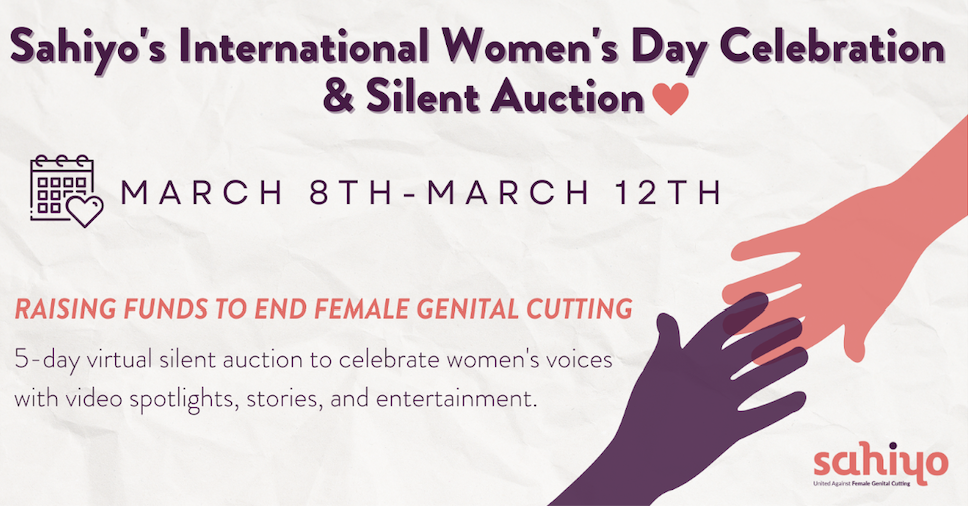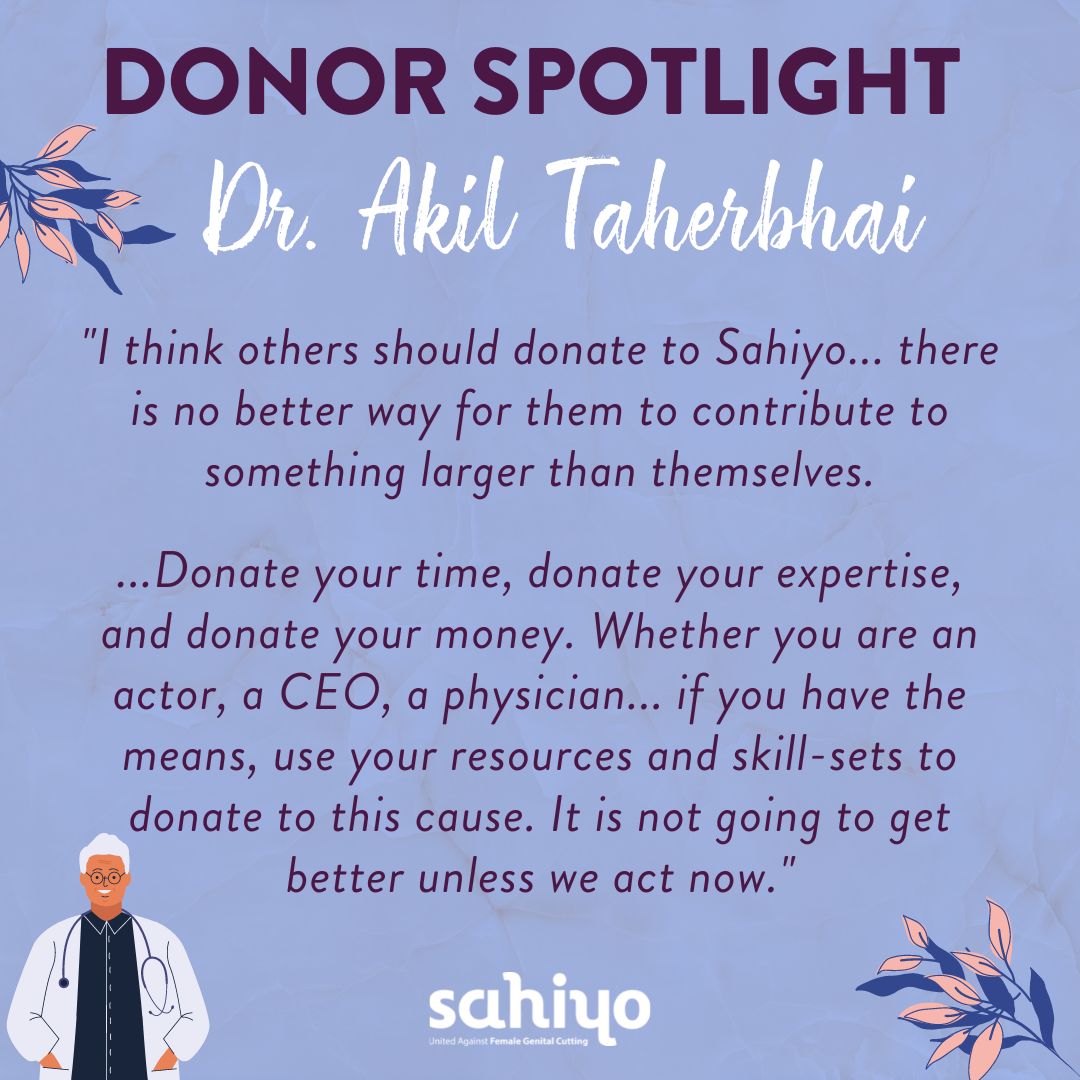By Rachel Wine
As the Washington Senate Bill 5453 concerning female genital mutilation/cutting (FGM/C) moves forward in the legislature, I had the honor of speaking with Absa Samba, who has been instrumental in advocating for legislation on FGM/C in Washington state.
Absa’s advocacy journey began over a decade ago, when Absa was in middle school. She attended a training, which explored gender issues, and it immediately became clear that things like gender expectations, gender roles, and harmful cultural practices were connected.
“I think the training… became a validation for what I've always felt, this inequality that existed in my society, and… I had language for what was going on, and that's when I started getting involved in advocacy and activism for the rights of women. A big part of that became advocating against harmful cultural practices, like child marriages and female genital cutting.”
Washington, where she currently lives, is one of ten remaining states without a law against FGM/C, though it is one of the highest-risk states; a 2016 study found that the Seattle-Tacoma-Bellevue metro area was the 5th highest metro area in the U.S. in terms of the size of the FGM/C-affected community. Absa’s background as an activist, and personal connection to this issue and other harmful cultural practices (she is a survivor of FGM/C), inspired her to choose FGM/C as her focus for a policy analysis class assignment.
“I was just doing an assignment, and I found out through my research that there were two bills that were presented that never made it out of Committee. And I think when I noted that in my paper, my professor asked me to find out why those bills failed, and that's when I reached out to one of the Senator’s office who had sponsored the bill in the Senate.”
What began as a class assignment evolved into an opportunity for Absa to chat Senator Karen Keiser on FGM/C in May of 2022.
“The Senator herself met with me and wanted to chat about the bill, the issue. And out of that conversation, I was like, okay, maybe a presentation on what FGM is would be helpful for this person, they seem really interested in it. So I opted to do a presentation, and the Senator was gracious enough to take the offer and invited other chairs of different Committees in the Senate to come to that, and it was at that point that I realized I was taking on more than I could afford to at the time. So I was connected with Mariya [Taher] and I reached out to Bettina [Shell-Duncan] and other folks and I said, “Hey, this is an opportunity to talk to these people about FGM in Washington, would you be interested in joining?” And they were kind enough to come on and help me with that presentation, and I think it was that moment that we realized, actually, this is really an opportunity to do something about this issue in Washington State.”
By pulling together support from the FGM/C sphere, Absa unknowingly planted the seed for the group that would become a key stakeholder in SB 5453’s creation.
Senator Keiser recognized the opportunity to do something from this initial experience; “her desire to introduce a bill on FGM/C solidified this work.” Absa began to facilitate the group working with Senator Kaiser, who was determined to loop in advocates and survivors in creating the bill. Absa would organize meetings and generate statements for the group, which eventually became the Washington Coalition Against FGM/C. The Coalition and various other stakeholders worked closely to co-author the bill, and Absa is rightfully proud of that.
“We've worked with the Senator closely to create the bill, I think what was remarkable was how much time Senator Keiser invested in making sure the bill was the way it should be, that it speaks to the realities of communities that are affected by the issue. That it was done in collaboration with stakeholders in this issue, we [the Washington Coalition] have worked with her in the process of creating a bill to give feedback and input on what we think should be in the bill, and what shouldn't. And working to find a common ground, so that we could work collectively. I think that can be seen in how well the bill was done and how well it's progressing in the legislature at this time.”
As SB 5453 moves to the House after passing in the Senate on March 1st, the Coalition continues to lead the drive for change. Though Absa’s goal was never to form this Coalition or even do this legislative advocacy, she has found herself here by believing in this work. The support of her fellow Coalition members, many of whom are also survivors that care deeply about this work, has also been critical; Absa has learned that “little steps and persistence will inspire others to power it along.” When considering their success, she emphasizes the importance of varied backgrounds and expertise that Coalition members bring to the table, which got things going in the right direction.
“Building a team and getting various stakeholders involved in making change happen is significant. Collective voice has the power.”
When asked for any advice she may have for other advocates, or anyone hoping to take a stand for something important to them, Absa had this to say:
“Do something. Not doing anything is not an option. The little wins matter, and what makes the goal achievable is not entirely dependent on one individual, it takes a collective. The more you keep going, the more people buy into your goal, the closer you get to achieving the goal.”
In the case of Washington, this certainly rings true.
Absa Samba is a graduate student pursuing a double masters in Social Work and Public Administration at the University of Washington’s Evans School of Public Policy and Governance and the School of Social Work. She is a survivor of FGC and a passionate advocate for women rights. Absa advocacy work started in her home country, The Gambia.
Absa also works with the International Program in Public Health Leadership and its 119 public health leaders across the African continent, and is serving as a Board Fellow for Communities in Schools Seattle. Absa received Champlain College's Global Impact award in 2019 for her work to advance social justice and women's rights around the world.
Voice your support for enacting legislation in Washington with this action alert.

